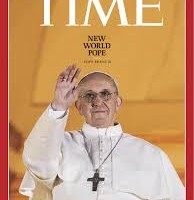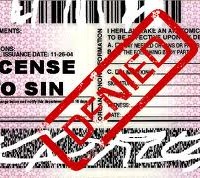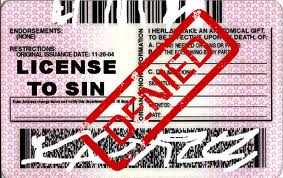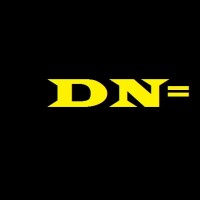Discernment is the divine enablement to distinguish between truth and error, good and evil, right and wrong. A person with this gift can differentiate pure from impure motives, identify deception in others, determine authenticity of messages from God, recognize false teaching and sense the presence of evil. (Paraphrased from “Network” by Bruce Bugbee and Don Cousins.)
In other words, discernment is God’s B.S. detector.
Have you ever known someone who accurately saw something fake or sinister in a person’s character before anyone else did? Have you ever had a friend who told you what you were thinking when you couldn’t even explain it yourself? This is discernment at work.
(Remember back at the beginning of this series when I talked about people talking in code? I didn’t forget about that. From here on out, we’re going to defuse political correctness one code-bomb at a time.)
Another word with a meaning similar to discernment, in the literal sense of having the ability to distinguish differences, is discrimination.
While discernment is a spiritual gift, given by God to whomever He chooses, discrimination is a natural skill that can be learned and developed by anybody through careful observation and judicious contemplation.
It would seem, then, that discrimination should actually be a positive thing, since being UN-able to recognize differences would be a sign of a lack of intelligence or observance.
Nevertheless, this word has gradually become associated with “bigotry,” even though those two words really aren’t connected.
DISCRIMINATION DN= BIGOTRY
There’s a big difference between distinguishing the differences in people and treating people differently. Paul wrote:
In Christ’s family there can be no division into Jew and non-Jew, slave and free, male and female. Among us you are all equal. That is, we are all in a common relationship with Jesus Christ. (Galatians 3:28 MSG)
And also:
[In this new creation all distinctions vanish.] There is no room for and there can be neither Greek nor Jew, circumcised nor uncircumcised, [nor difference between nations whether alien] barbarians or Scythians [who are the most savage of all], nor slave or free man; but Christ is all and in all, everything and everywhere, to all men, without distinction of person]. (Colossians 3:11 AMP)
In making these statements, Paul is instructing these early churches that although the Church is made up of all kinds of different people from different backgrounds, it is much more significant that Christ is our common ground. Being the original Truthseeker, Paul discriminates by noting the differences, but does not show favoritism, because Christ does not show favoritism.
Looking at it this way, we can clearly see that bigotry is defined by emphasizing differences with the motive of boosting one’s own status over that of another based solely upon those differences. Bigotry may START with discrimination, but it ends somewhere else entirely.
So how do you know when you’ve crossed the line?
Labels
Whenever you refer to another person with a label instead of their name, that’s a pretty clear sign that you are crossing over to the dark side of discrimination, because you are now seeing that person not as an individual, but as part of a subset of humanity, most likely one to which you do not belong yourself.
Once you have identified the difference and affixed a label to it, the emphasis of that difference comes naturally. From there, it’s a very short walk to bigotry, simply because our human nature is to justify ourselves, and the easiest way to do that is to lower our view of others. Labels just streamline that process.
So how does discernment fit into this?
From the definitions we have already discussed, discernment is essentially God-level discrimination. But since we have already seen that God sees all of His followers as equal in Christ, then it should be obvious that the purpose of discernment is not to enable bigotry by labeling humans and dividing them into groups.
Discernment is not about judging character or outward appearances, but rather motives and the behavior that arises from them. Which leads me to my next DN=.
(Come back for Part 6–Judgmental)






